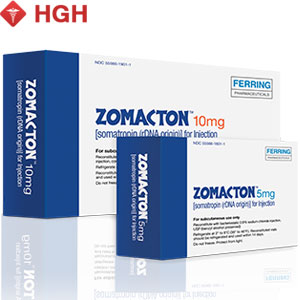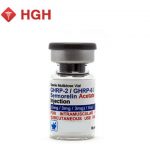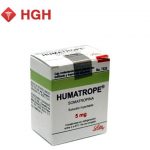
What is Hypothyroidism?
Hypothyroidism is also known as an underactive thyroid. It is a disorder in which the thyroid gland does not produce enough of the thyroid hormone. The main cause of Hypothyroidism is caused by Hashimoto's Thyroiditis.
Hashimoto's Thyroiditis is an autoimmune disease that causes the immune system to attack the thyroid. It affects seven times more women than men. The cause of this illness is not known.
Detecting Hypothyroidism
The best way to detect hypothyroidism and low testosterone levels is through a lab test at the doctor’s office. A sample of blood will be taken. Hypothyroidism is directly detected by measuring thyroxine (T4) and Thyroid-Stimulating Hormone (TSH). Testosterone levels are also analyzed.
This is because they can be a key indicator of hypothyroidism as they cause an elevation in prolactin. This is a direct response of an underactive thyroid.
Hypothyroidism and low testosterone levels can be detected by measuring the basal temperature daily for a week. This is done with a basal thermometer. It should be done before any food or drink intake, as well as before going to the bathroom. Make a note of the basal temperature every day. At the end of the week, add up the number, then divide them by seven. A normal basal temperature is between 97.6 and 98.2 degrees Fahrenheit. Any temperature below this range, could be a sign of hypothyroidism.
Is low testosterone in Men and hypothyroidism related?
The most notable connection between hypothyroidism and low testosterone is the decrease of sexual desire, and metabolism in men. Hypothyroidism causes a decrease of the gonadotropin-releasing hormone (GnRH). When this happens, luteinizing hormones (LH) are not able to effectively produce testosterone in the male genitalia.
Hypothyroidism and Low Testosterone Symptoms
Symptoms of Hypothyroidism and Low Testosterone are as follows:
- Fatigue
- Feeling cold
- Sudden weight gain
- Low blood pressure
- Depression
- Arrhythmia
- Elevated cholesterol
- Constipation
- Muscle tension
- Hair loss
- Decreased immunity
- Decreased libido
- Dry Skin
- Erectile dysfunction
Hypothyroidism and Low Testosterone Treatment
There are many treatments for hypothyroidism and low testosterone. A healthy diet that includes herbs like ginseng and turmeric are effective. Getting more sleep, exercising, and lowering stress are great ways to treat these ailments as well. Sleep is the most important treatment because it increases the body's natural secretion of hormones. If the case is more serious, medications and replacement therapy may be used.
Replacement therapy differs from male to female. Men have more options for replacement therapy than women. Men have the options of creams, gels, patches, and injections. Women only have the option of transdermal creams.
Testosterone replacement therapy will cause hypothyroidism treatment to have a positive impact. This form of treatment will increase energy, sex drive, and reverse erectile dysfunction. It will also increase bone density, muscle mass, and insulin sensitivity. Since a low testosterone level is the key indicator of hypothyroidism, increasing testosterone levels will diminish the existence of hypothyroidism.
Low testosterone and hypothyroidism can cause major problems if left untreated. High cholesterol, increased risk of heart attack, and stroke are among major complications that can occur if this deficiency is left untreated. Dementia, diabetes, heart disease, and osteoporosis are other complications that may occur. It can also cause problems in pregnancies that can pass on to the unborn child. Being happy will seem far-fetched if you are always tired, and moody. The symptoms can mirror symptoms of depression. Doctors have misdiagnosed patients with depression making way for an increased chance of a complication occurring.
Go to your doctors office if you are having any of these symptoms. Pay close attention to having multiple symptoms at the same time. The best way to know your current status is to see your doctor. Do not let low testosterone and hypothyroidism cause chronic illness. If you are in question about any of these symptoms, consult your doctor. It is better to know your status, and work towards reversing it, than leaving it untreated and paying for it later. Please understand that even though hypothyrodism and low testosterone do not cause alarming symptoms, they can lead to chronic illnesses that can lead to death. Consult your doctor for more information about your status, and risk factors.




